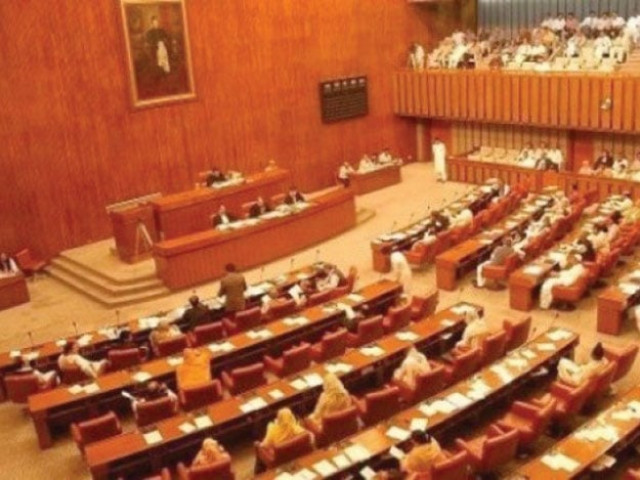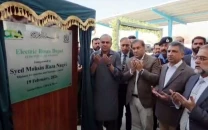Yea or nay: Parliamentary panel ponders direct election to Senate
Seeks opinions by May 13; also considers amending allocation of reserved seats

Seeks opinions by May 13; also considers amending allocation of reserved seats. PHOTO: EXPRESS
The sub-panel of the bipartisan parliamentary committee on electoral reforms reviewed different proposals regarding changes in the procedures for election of members of the Senate and the election of members on reserved seats in the national and provincial assemblies.
One of the proposals seeks direct election to the Senate whereby the electorates directly vote to elect senators.
Similarly, the committee also seeks input from the political parties on a proposal to allocate the number of reserved seats to a political party on the basis of the total number of votes it secures in an election.
Under the current system, the MPAs elect senators from their province, the MNAs elect four senators from Islamabad, and 12 Federally Administered Tribal Areas (Fata) MNAs elect eight senators to represent their area. Half of the members retire every three years and new ones replace them.
While the Senate is called the upper house of Parliament, there has been much criticism on the overall mechanism for the election of the senators and the power of the Senate.
Under the existing procedure, 12 MNAs from Fata form an electoral college to elect eight members of the Senate from Fata.
Four members of the Senate from Fata are elected every three years on expiry of the term of half of the members.
Many believe that the procedure is flawed, as a small number of lawmakers decide the fate of the Senate candidates from Fata, leaving room for ‘manoeuvring’ and ‘sale of votes’.
The procedure was changed in March through a late-night presidential order issued hours before the polling, but that too was mired in controversy and led to postponement of election on four Senate seats from Fata. The elections on these seats took place a few days later when the ‘controversial’ order was withdrawn.
For Islamabad, on the other hand, two Senate seats for the Islamabad Capital Territory are contested every three years and the entire National Assembly votes for it.
Reserved seats
Zahid Hamid, who heads the parliamentary panel that is reviewing the election laws, said proposals were also received for changing the procedure for election on reserved seats of women and minorities in the national and provincial assemblies.
One of the proposals seeks allocation of reserved seats to a political party on the basis of the total number of votes secured.
Under the current system, reserved seats are allocated on the basis of the number of general seats secured by a party.
Hamid said all the political parties represented in the Parliament had been asked to submit their responses to the proposals by next Wednesday (May 13).
Published in The Express Tribune, May 7th, 2015.



















COMMENTS
Comments are moderated and generally will be posted if they are on-topic and not abusive.
For more information, please see our Comments FAQ